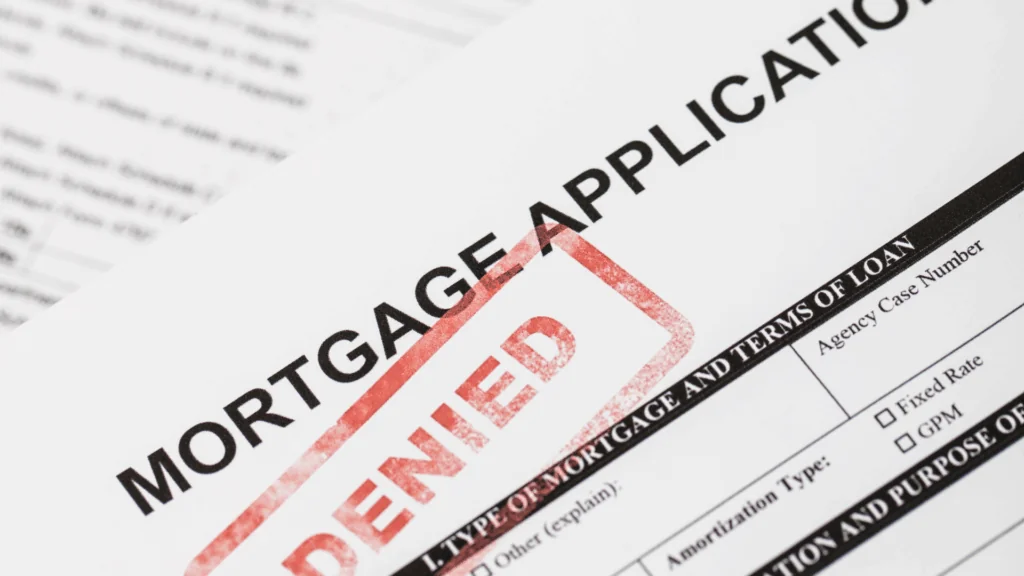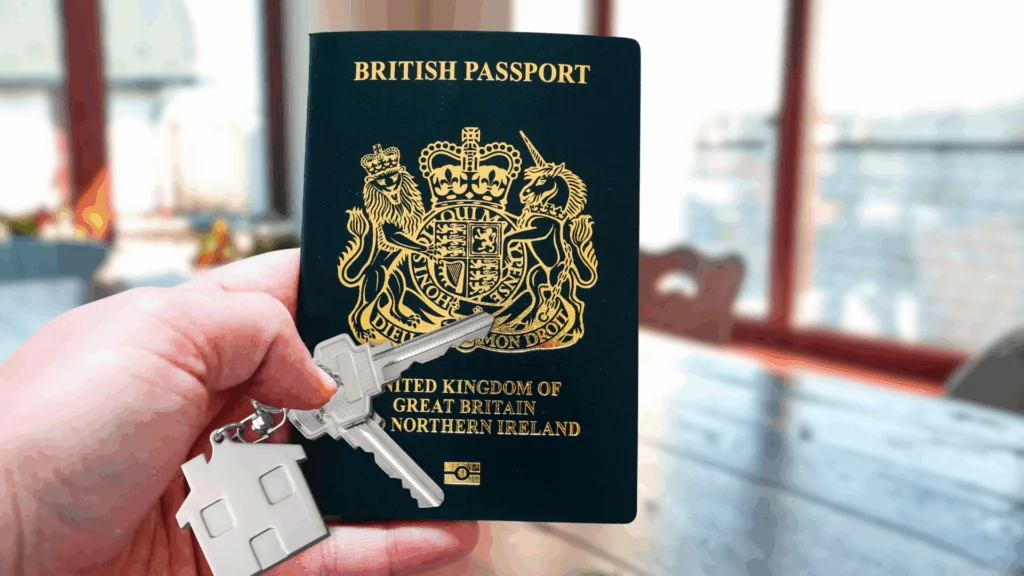- Can You Get a Mortgage as the Sole Applicant When Married?
- Will Being Married Affect My Mortgage Application?
- Why Get a Sole Mortgage Instead of a Joint Mortgage?
- Do I Need My Spouse’s Permission for a Sole Mortgage?
- What if My Partner Won’t Share Their Financial Details?
- How Much Can I Borrow on My Own Income as a Married Applicant?
- Can I Leave My Spouse Off the Property Deeds?
- Single Mortgage Top Tips When Married
- The Bottom Line: How To Apply?
Getting a Single Mortgage When Married: Is It Possible?

You’re married. You love your spouse dearly. But when it comes to getting a mortgage together, it’s…complicated. 😵💫
Maybe your partner has some credit hiccups that could jeopardise your application. Or perhaps you earn the lion’s share of the household income.
One of you might be self-employed with a jumble of accounts, making a joint mortgage trickier.
Whatever the reason, you’ve decided that getting a mortgage alone while married makes the most sense for your situation. Totally doable.
But potentially a bit more of a hassle than you might realise.
If you’re nodding in agreement, you’re in the right place.
Getting approved for a sole mortgage when married has its quirks and requirements. There are some extra things to consider that most people don’t face when applying for a mortgage together.
In this guide, you’ll see a complete look of all the key considerations for married people wanting a “single mortgage application”
We’ll cover:
- If being married actually impacts your solo mortgage application
- The legitimate reasons to get a mortgage without your spouse
- Whether you legally need your spouse’s consent or not
- How much mortgage you can reasonably expect to borrow alone
- The potential implications of leaving your spouse off the property deeds
- And tips to boost your approval chances as a solo married applicant
If you want a solo mortgage that keeps the peace at home while putting a roof over your head on your terms, this guide is for you. 👍
Time to quit endless Googling and get some straight-talking answers. 🧾
Can You Get a Mortgage as the Sole Applicant When Married?
When you’re married, the assumption is often that you’ll apply for a joint mortgage to buy a home together. But that’s not always the case.
Various reasons might lead you to get a mortgage in just one person’s name, even when married.
If you’re wondering, “Can I get a mortgage on my own if I’m married?”
The simple answer is yes, it’s very possible in the UK.
However, it requires meeting certain mortgage requirements and criteria. Let’s look at the key considerations.
Will Being Married Affect My Mortgage Application?
Being married won’t automatically prevent you from getting a sole mortgage, but it can make the application process more complex.
For example, the lender will want to know:
- Your partner’s income, spending, debts and assets
- Why you want to be the sole applicant
- Who else lives in the property as non-owners
Some lenders assume your spouse will also be a party to the mortgage unless you specify otherwise.
You may need to provide additional paperwork and explanations compared to applying as an individual who has never been married.
So while it’s certainly allowed, getting a sole mortgage when married can be a little more complicated.
Let’s look at some of the top reasons people consider this option.
Why Get a Sole Mortgage Instead of a Joint Mortgage?
There are various scenarios where getting a single-person mortgage while married makes sense:
- Your Partner Has Poor Credit. If your spouse has a poor credit history with defaults, CCJs, or something more serious like bankruptcy, this could seriously limit your joint borrowing options. By applying alone, their credit issues won’t impact your ability to get approved.
- You Earn Significantly More Income. In some marriages, there is a big disparity in earnings. If your household income is mostly from your salary, you may qualify for a larger mortgage amount by only using your own income, assets, and credit rating.
- Your Partner is Self-Employed or Has a Complex Income. If your spouse has a complicated income situation like being self-employed, a business owner, or having multiple income streams, single mortgage affordability may be easier to calculate and get approved.
- You Provide the Deposit. If your partner isn’t contributing to the deposit, some lenders might still allow a joint mortgage if a deed of trust is set up to protect your investment.
- You Already Own a Property. If you owned a property before marriage and now want to buy another, a sole mortgage keeps your new spouse off the title deeds. This can simplify the process and avoid complicating your finances.
- You Seek Tax Benefits for Investments. For buy-to-let or investment properties, applying alone can offer tax benefits. Lenders are often more accommodating of a solo application in these cases.
- You Don’t Want Your Spouse Liable. Some people prefer to get a mortgage without their spouse being legally liable if they can qualify on their own income. This keeps debts and assets fully separate.
- You’re Divorced or Separated. If you are going through a divorce or separation, getting a new sole mortgage may be needed to remove an ex-partner’s name or to buy out their share of ownership.
- Your Partner is a Non-UK Resident. Lenders can have very specific requirements if applying with someone without indefinite leave to remain in the UK. A sole application may be simpler.
As you can see, there are many valid reasons to carefully consider a sole mortgage application even when married or living together as spouses.
Do I Need My Spouse’s Permission for a Sole Mortgage?
No, you don’t legally need your spouse’s consent or signature to take out a mortgage in just your name, even if you’re pooling your resources.
Yet, lenders will still ask about your marital status and any dependents as part of their application process. Trying to conceal your marriage is not advisable; it could be seen as fraudulent.
Some lenders often want to assess your spouse’s finances too, including their income, debts, and credit history, to get a complete view of your household’s situation.
However, if you qualify on your own, their finances won’t stop you from getting approved.
What if My Partner Won’t Share Their Financial Details?
If your spouse won’t share their financial details, you still have options for getting approved:
- Use a lender that accepts sole applications without needing your partner’s income or asset details.
- Explain why your partner’s information isn’t included, such as separation or being a non-EU resident without a UK credit file.
- Seek help from a mortgage broker experienced in single-applicant mortgages for married individuals. They know which lenders have more flexible policies.
- As a last resort, look for lenders who may approve with just your income and assets, though this might require a higher deposit.
While full financial transparency is ideal, there’s flexibility for getting a sole mortgage with the right broker’s advice.

How Much Can I Borrow on My Own Income as a Married Applicant?
When you’re married, but applying solo, how much you can borrow hinges on your own income, existing debts, credit score, and the size of your deposit.
Most lenders will cap your borrowing at around 4-5 times your annual income before tax. So, if you’re earning £50,000 a year, you might be looking at a mortgage between £200,000 and £250,000.
But it’s not that simple. Factors like your deposit size, existing commitments, job security, and location can sway this figure.
A bigger deposit and little to no debt could boost your borrowing potential. On the flip side, existing loans or childcare costs might pull it down.
To see a quick estimate of your mortgage amount, use our mortgage affordability calculator.
Can I Leave My Spouse Off the Property Deeds?
While possible, there can be some legal and tax implications if you want to own the property under just your sole name while being married.
- UK Marriage Laws and Jointly Owned Assets. In the UK, assets acquired after marriage are considered jointly owned, regardless of whose name is on the deeds. This ensures both parties have certain rights and claims.
- Stamp Duty Risks. Leaving your spouse off the property title without a valid reason could be seen as an attempt to avoid higher stamp duty rates on second homes, which is considered tax avoidance.
- Inheritance and Divorce Implications. A non-owner spouse might face issues with inheritance rights and property division in case of divorce.
Exceptions
While getting approved for a mortgage as a sole applicant, lenders might question why your spouse isn’t on the title deeds. Common exceptions include:
- Your spouse is a non-UK resident without legal rights to own UK property.
- The property is a rental investment separate from your matrimonial home.
- Clear legal reasons, like protecting inherited assets from previous marriages.
To avoid complications, it’s generally best to make your spouse a co-owner on the property deeds, even if you qualify for the mortgage on your own.
Single Mortgage Top Tips When Married
To improve your chances of getting approved for a sole mortgage while married, keep these tips in mind:
- Be upfront, don’t hide your married status or any financially dependent individuals
- Explain clearly if you will be the sole mortgage holder and why that approach is necessary
- Gather all income, debt, credit and asset documentation proof for your sole profile
- Consider a larger deposit over 10-20% if your partner has poor credit being excluded
- Check the legal and tax implications of leaving your spouse off the property deeds
- Shop around and get advice from brokers who specialise in single-applicant mortgages
If you qualify financially and have a valid reason for applying solo, a single mortgage when married is certainly an achievable option in the UK with sound mortgage planning and advice.
The Bottom Line: How To Apply?
Due to the complexities involved when getting a sole mortgage when married, seeking professional advice is highly recommended.

Qualified mortgage brokers that specialise in sole mortgage applications for married people can ensure:
- You fully understand all the potential implications before you apply.
- Your application is properly documented and structured.
- Everyone’s legal interests and responsibilities are clearly laid out.
- You’re matched with lenders who know how to handle this specific situation.
- You avoid costly mistakes during the application or closing process.
Using a whole-of-market broker gives you peace of mind. They’ll handle the tricky bits of your mortgage application, leaving you free to focus on other important things. 😀
Need a broker? Get in touch. We’ll connect you with a qualified mortgage broker for a FREE, no-obligation consultation about your situation.
Get Matched With Your Dream Mortgage Advisor...

Frequently asked questions
What if my husband died and my name is not on the house?
If your husband passed away and your name is not on the house, the situation can be complex.
The property will typically go through probate, where the courts oversee the distribution of your husband’s estate according to his will.
If there is no will, the property distribution will follow intestacy laws, which might entitle you to a share of the property.
It’s advisable to consult with a solicitor to understand your legal standing and to help navigate the probate process. You may need to provide proof of marriage and other relevant documents to support your claim.
Is it better to have one person on a mortgage?
Choosing between a single or joint mortgage depends on your circumstances.
If one partner has a significantly higher income or better credit score, applying alone might secure a better deal. However, a joint mortgage lets you combine incomes to borrow more and share repayment responsibility.
Both options have advantages and disadvantages, so carefully consider your financial situation and plans.
Talking to a mortgage advisor can help you decide which approach is best for you.
Should I notify my mortgage lender if my partner moves in?
You don’t legally have to tell your mortgage lender if your partner moves in.
However, most mortgage agreements say you must inform them of major changes in who lives with you. This is because another adult there can affect the lender’s risk assessment and your insurance.
Also, if you marry or form a civil partnership, tell your lender that your partner might get some ownership rights even if they don’t contribute to the mortgage.
Not telling them could break your mortgage agreement and cause problems. To avoid issues, tell them promptly.
Does being married make it easier to obtain a mortgage?
Marrying can give you a leg up on getting a mortgage, but it’s not a guaranteed shortcut.
It helps because you can combine your incomes, potentially allowing you to borrow more and get a better interest rate.
However, if your partner has bad credit or a lot of debt, it could hurt your chances. Mortgage lenders look at both your finances, so consider your credit scores and debts together.
In some cases, applying alone might be better if your partner’s finances would hold you back.
What are my rights if my partner is the homeowner?
If your partner is the homeowner, your rights depend on your relationship status.
If you are married or in a civil partnership, you have the right to live in the property and cannot be evicted without a court order, regardless of whose name is on the title deeds.
You might also have a legal claim to a share of the property, though this won’t necessarily be 50%.
If you are not married, you do not have automatic legal rights to the property.
However, you can protect your interests by having a cohabitation agreement or proving a beneficial interest in the property, such as by contributing to the mortgage or making improvements.
Consulting a solicitor can help you understand and safeguard your rights.
Can I take over a joint mortgage alone if I get divorced?
You can take over a joint mortgage after a divorce, but it requires a few steps.
Prove to the lender you can afford the payments alone by showing your income, credit history, and financial situation.
Get the lender’s approval to transfer the mortgage to your name, which might involve reapplying.
Remove your ex-partner’s name from the mortgage and property title, likely needing a solicitor and possibly a court order.
Professional advice can simplify the process.




